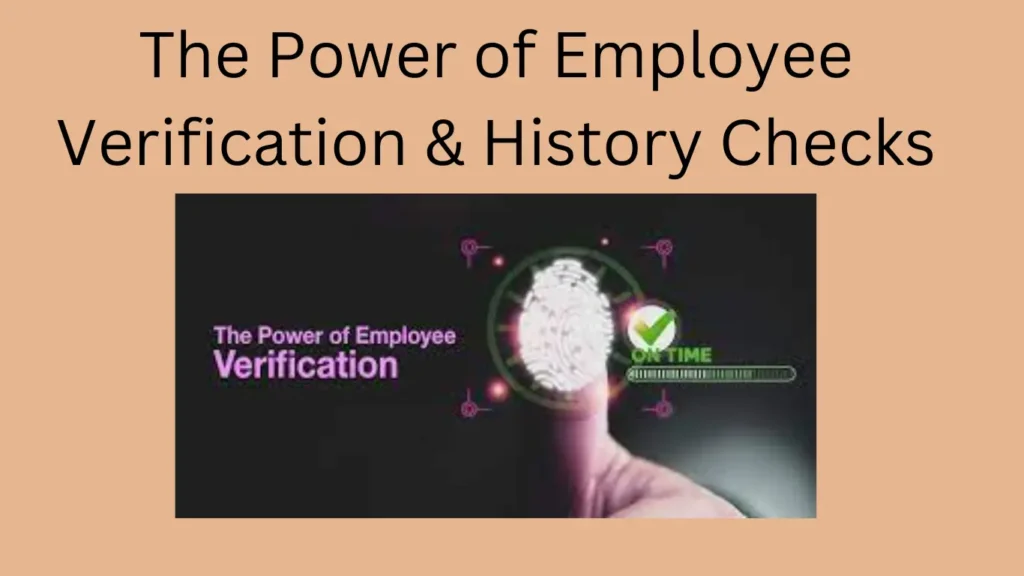The success of a firm depends critically on hiring the proper individuals in the cutthroat business environment of today. Employers are becoming more and more aware of the importance of performing extensive background checks and employee verification, or BGV. This thorough procedure protects the company’s reputation and well-being in addition to ensuring the reliability of prospective hires.
Verifying employees and running background checks on them are essential tools for demonstrating the dangers involved with potential employment. Employers can find people with a history of financial irregularities, unethical behavior, or fraudulent activity by conducting a thorough Background Verification (BGV) process. Through comprehensive background checks that cover educational credentials, job history, criminal histories, and professional references, companies may protect themselves against the negative effects of hiring people with dubious backgrounds.
Employee Verification After Hiring: Drawbacks and Mitigation Techniques
Pre-employment verification is generally acceptable, but there are some difficulties and disadvantages when doing these checks once an individual has started working for the organization. Here, we’ll examine three issues with employee verification subsequent to joining and consider possible fixes for these problems.
Effect on Morale and Trust among Employees
The possible harm to trust and morale that could result from employee verification after joining is one of the main issues. Workers may feel uncomfortable and uneasy at the workplace if they believe their privacy is being violated. Mistrust can be perceived as eroding employee engagement and loyalty, which will ultimately impact productivity and the dynamics of the workplace as a whole.
Risks to Law and Compliance
Verifying an employee after they join may put organizations at risk for legal issues and compliance violations. Companies must carefully manage the complexity of privacy, data protection, and discrimination laws and regulations, as they differ throughout jurisdictions. Companies may find themselves in legal hot water if they unintentionally break privacy rules or undertake checks that violate an employee’s rights.
Time and Realistic Restrictions
Once an individual joins the organization, there may be practical and scheduling constraints when it comes to employee verification. Verifying one’s work history, educational background, criminal history, and other details is a common step in background checks, and it might take some time. The effectiveness of onboarding procedures can be impacted by delayed verification, which may cause delays in task delegation and workflow integration for new hires.
Companies should take a complete approach that includes open communication, compliance with legal standards, and effective verification methods in order to lessen the negative effects of employee verification. It’s critical to keep lines of communication about employee verification policies open and honest. Companies can promote a transparent and trusting workplace by outlining the checks’ rationale and highlighting their importance. Ensuring that employees comprehend the objectives of these measures and the advantages they offer concerning workplace safety, adherence to regulations, and preservation of reputation is vital. Putting in place a well-defined procedure for answering queries or worries that staff members may have regarding verification can help allay fears and keep spirits high.
Employers ought to give top priority to putting modern, effective staff verification procedures into place in order to get beyond scheduling and practical constraints. Putting money into tech-driven solutions can speed up the verification process a lot. Information processing, document management, and data collecting can all be reorganized with the use of automation tools, such as sophisticated verification software. Businesses can save time and effort while preserving accuracy by automating manual activities and minimizing human error. Furthermore, centralized and secure storage for verification documents is made possible by digital document management systems and safe internet platforms, making it simple to access, track, and manage personnel data. These innovations in technology improve the verification process’s efficiency and guarantee a smooth and prompt onboarding of new hires.
In the ever-changing business world, where credibility and trust are crucial, employee verification and background checks have become an indispensable part of the employment process. Organizations may cultivate a positive reputation, reduce risks, improve workplace safety, and foster trust by doing comprehensive background investigations. It is imperative that businesses collaborate with seasoned background check companies that follow industry standards and guarantee legal and regulatory compliance. In the end, spending money on a strong BGV process is an investment in the organization’s sustainability and long-term success.
Recall that the individuals you select will determine the direction your business takes. Make the required decisions that will determine the destiny of your organization by uncovering the truth.
For further Inquires Contact Us
FAQs
What is employee verification?
Employee verification is the process of confirming a candidate’s employment history, qualifications, and other relevant details to ensure they are suitable for a job.
Why are employee history checks important?
Employee history checks help employers verify a candidate’s work experience, performance, and reliability, reducing the risk of hiring unqualified or dishonest employees.
What is included in an employee history check?
An employee history check typically includes verification of previous employment, education credentials, professional licenses, and sometimes credit history and criminal records.
How do employee verification and history checks benefit businesses?
These checks help businesses make informed hiring decisions, reduce employee turnover, improve workplace safety, and protect against negligent hiring claims.
Are there legal considerations for employee verification and history checks?
Yes, employers must comply with federal and state laws, such as the Fair Credit Reporting Act (FCRA), when conducting employee verification and history checks.
